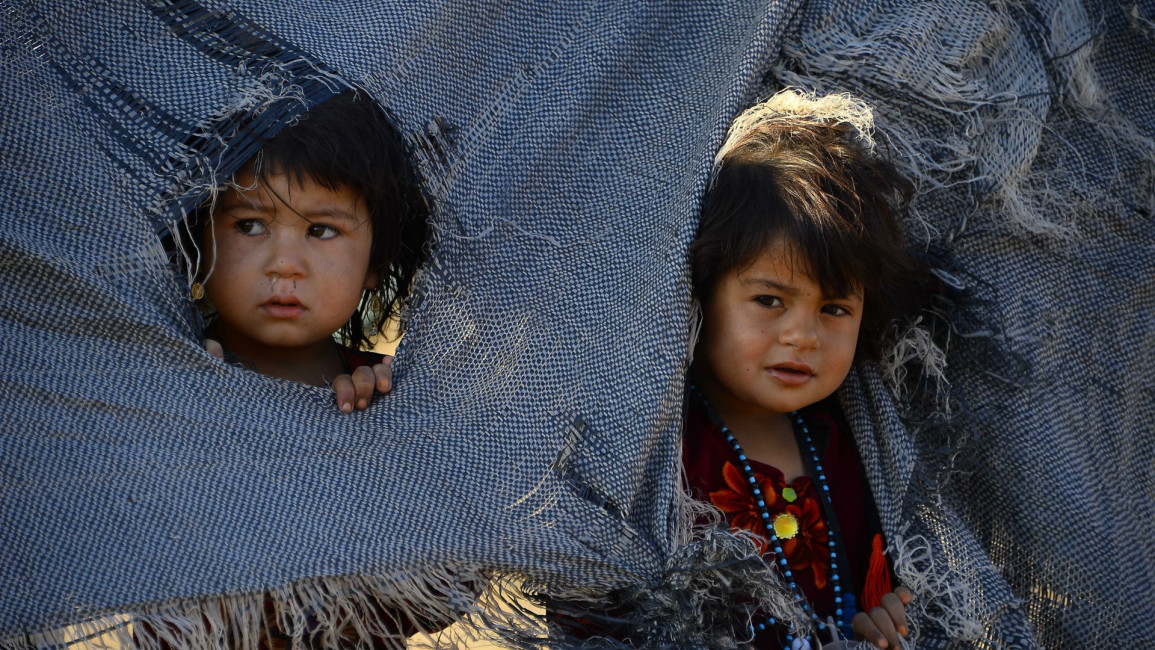Surge in mental health issues among Afghanistan civilians due to war
Surge in mental health issues among Afghanistan civilians due to war
Children and women particularly are suffering from mental health issues due to the ongoing violence in the country.
2 min read
Children are suffering from mental health issues due to the war [Getty]
There is a surge in mental health issues in Afghanistan, which is a consequence of the continuous violence in the region, a new report by Action on Armed Violence has found.
Post Traumatic Stress Disorder (PTSD) is on the rise, and the International Psychological Organisation estimated that 70 per cent of the country’s 37 million people are in need of psychological support.
One study looked at Soviet occupation and years of violence in Afghanistan and found that the 40.8 per cent of civilians have mental health issues triggered by consistent rocket attacks, followed by bombardment from coalition forces (34.9 per cent).
The survey, which looked at a small pocket of society – 699 participants – also found that 67.7 per cent had symptoms of depression, 72.2 per cent had symptoms of anxiety, and 42 per cent suffered from PTSD.
Jonathan Pedneault, conflict and crisis researcher at Human Rights Watch, has argued that "there is an urgent need for expanded psychosocial services to support Afghans exposed to violence, suicide bombings, and airstrikes, and prevent the long-term effects that can be debilitating to survivors, families, and entire communities."
Children and women are suffering
|
Additionally research conducted by the UN found that in 2017, 81 per cent of casualties from explosive remains were children.
Women are also at a higher risk of experiencing mental health issues stemming from conflict. One study found that one in five women out of 1,463 in the trial had been exposed to a traumatic event by witnessing an armed attack, and these women were found to be more likely to develop depressive and PTSD symptoms.
This comes as Donald Trump recently said he intends to withdraw troops from Iraq and Afghanistan.
In Afghanistan the US currently has 8,600 soldiers in accordance with a bilateral agreement signed in February between Washington and the Taliban.
The Pentagon said in August that its goal was to get down to fewer than 5,000 troops as inter-Afghan peace talks progress.
Trump previously mentioned in an interview with Axios that the White House aimed to reach 4,000 to 5,000 troops in Afghanistan by the November presidential election.



